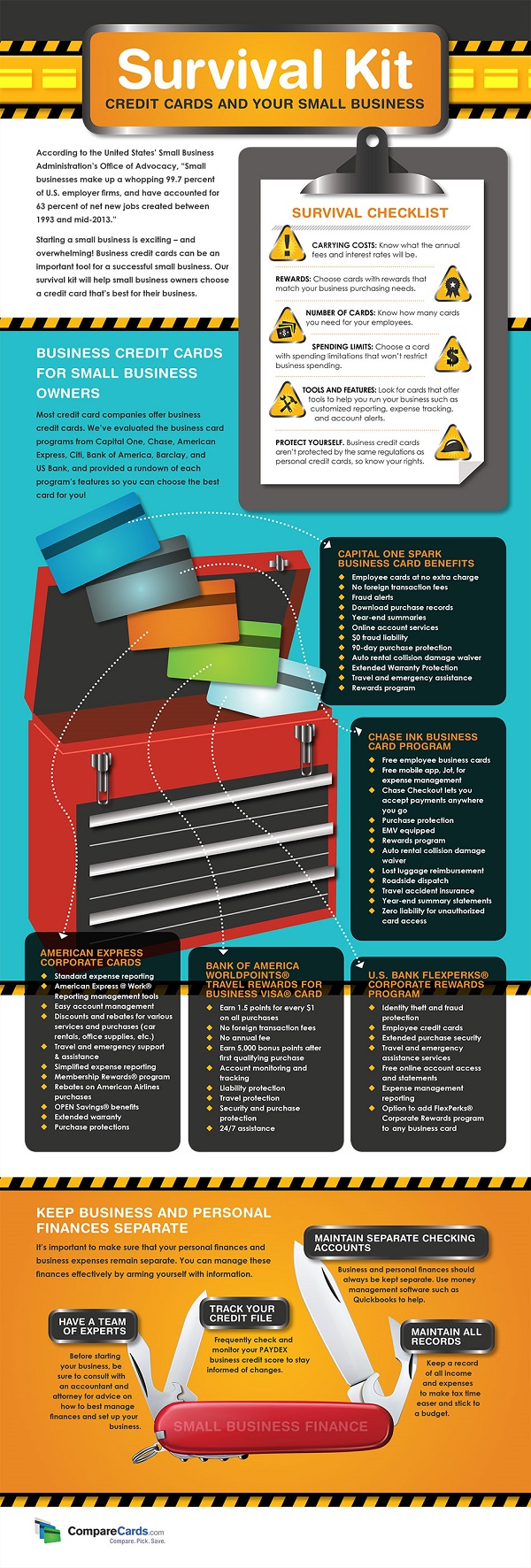By Rieva Lesonsky
Laptops as Billboards, What Credit Card Should You Use & Why are so Many in Wyoming Tweeting about Rollerblading?
1) Great Idea!
Are you in a Starbucks, other coffee shop or airport right now? Do you see a lot of people bent over their laptops, busily working away? Maybe you’re even wondering what they do, if there’s a potential service provider or partner lurking behind that computer.

Well now, thanks to Coffee Shop Freelancers people can showcase their skills—right on the backs of their laptops. The Belgian company offers a variety of decals ($35) that essentially turn your laptop into a billboard. A variety of professions are represented, including: “I build awesome websites”; “Talk to me about my blog”; or “Looking for a programmer? Let’s talk.” Personalized versions will be introduced later.
This is a really inexpensive way to break the ice, network and gain exposure for your services.
2) Creditworthy
Credit cards today come with a myriad of offers and rewards it’s hard to know which card is right for you and your small business. CompareCards.com has created a “Survival Kit” to help you wade through some factors, such as fees, rewards, spending limits and more.

3) I Feel Good!
Not just me, of course—all of us small business owners. According to a just-released survey from Xero, which offers online accounting software for small businesses, 74 percent of us are “optimistic about growth in 2015,” 62 percent are prioritizing customer growth and 33 percent plan to invest in technology. But 80 percent don’t plan to hire, creating, says Jamie Sutherland, Xero US president, conflicts regarding “small business owners’ lack of intention to hire, and their desire for growth.” Sutherland says “this points to an absence of business performance insights, which decreases confidence when it comes to hiring and making investment decisions.”
Other survey results show small business owners consider “honesty and respect” guiding business values. Nearly 20 percent say they “aspire to be like Ben & Jerry’s, while only 1.6 percent cite Uber as their role model.
The Xero survey looked at Millennial entrepreneurs and found 90 percent are optimistic about growth this year, compared to 74 percent of all respondents. More than half (55 percent) of Millennials say at least 25 percent of their businesses are run in the cloud, more than double the percentage among all respondents (23.5 percent). Other Millennial attributes: 45 percent want better work/life balance, 80 percent use Facebook for their businesses and 30 percent haven’t taken a vacation in a year.
For more survey results, see Xero’s infographic.
4) 3 Tips for Launching a Successful Healthcare Tech Company
The healthcare technology industry is growing rapidly, with startup funding for digital healthcare expected to double over the next two years, hitting $6.5 billion by the end of 2017. Driving the surge, a number of major players in the space, like GE Ventures has beefed up its investment in the last year.

This is great news for entrepreneurs with brilliant ideas and groundbreaking technology that can improve the efficiency and quality of care, just when we need it most. But, launching a successful healthcare startup takes more than a great idea and the drive to conquer this vast frontier of opportunity. It also takes smart planning and a deep understanding of the formidable challenges facing providers, insurers and patients as we move toward a better system. What should you know before taking on the healthcare market?
For the answers, we turned to serial entrepreneur Neil Smiley, the founder and CEO of Loopback Analytics. Smiley founded Loopback in 2009 to deliver an advanced SaaS platform healthcare providers can use to prevent costly readmissions. Smiley’s advice:
- Address HIPAA and HITECH requirements up front. The regulations and protocols for handling sensitive patient and payment data are stringent and complex, creating a major barrier for many startups. It’s easy to overlook this component and try to back into it later, especially for entrepreneurs who have only a consumer’s perspective of healthcare. However, you’ll be dead on arrival if data security isn’t baked in from the beginning. Not only will your product be impossible to sell, but noncompliance puts you in breach of the law, the penalties are draconian—you could be subject to significant fines or even go to jail.
- Understand how your customers get paid. Let’s be honest: healthcare reimbursement is kind of a mess and it’s undergoing a sea change from a volume-based fee-for-service system to an outcomes-based model. However, the status of that transition varies considerably across the industry. What saves money or adds new revenue for one customer may actually be detrimental for another. For example, reducing hospital readmission has become a big issue, and CMS has begun leveling penalties against some hospital and provider networks with high readmission rates. Perhaps your product can help them meet CMS goals in spectacular fashion. However, some hospitals are not subject to those penalties, and reducing readmission for them could mean eliminating a large chunk of their topline revenue. If your technology improves patient outcomes and reduces overall cost of care—great! But make sure the customers you are selling to will benefit financially or they won’t be able to keep paying you.
- Be able to quantify the Return on Investment (ROI) for your service. One of the toughest things about selling new healthcare technology is collecting data to quantify the benefit, especially in the outcome-based pricing and shared-savings environment, and asking your customers to provide data to validate your ROI puts you in a very weak position. It’s even more challenging to get paid on soft benefits like improved satisfaction, productivity or improved communications, unless you can show how those benefits translate into the hard-dollar savings for the customer.
The challenges in launching a healthcare startup are significant. It’s critical for healthcare entrepreneurs to understand the barriers that are unique to the industry. However, with so many “broken” components in the current system—especially in its transitional state—there has never been a better time for entrepreneurs to use their creativity and determination to resolve the issues and build a better system, for the benefit of the industry and our individual wellbeing as consumers.
5) Twitter as a Research Tool
I don’t know about you, but I spend a lot of time on Twitter, mostly talking to other business owners and keeping up with the news. But you can also use Twitter for a whole lot more. You can, for example, find out what your customers are talking about, their locations and other relevant factors that may contribute to a sale.
A team from eBay turned to Twitter to uncover America’s favorite hobbies—and the results are fascinating. Altogether they were able to identify the top 17 outdoor hobbies, by state.
First, some quick Facts:
- Swimming was the most popular hobby across the board.
- Skateboarding was most popular in Utah, followed by Maryland and Colorado.
- Rollerblading is not dead—if you live in Wyoming.
I was surprised that skiing was most tweeted about in North Dakota and not Colorado or Utah. You might find some more surprises here. This is useful for more than idle curiosity or to win a trivia contest. You can take to Twitter to find out what people in your industry—or in your region are talking about.
6) Small Business Concerns
Business models are constantly evolving which puts increasing pressure on you to keep up, adapt and thrive. BizBuySell.com, the Internet’s largest business-for-sale marketplace, surveyed small business owners to find out how new competition, specifically disruptive technology platforms like Uber and Amazon, affects their values. Nearly 40 percent say these new technologies affect the value of their businesses.
The results varied. Retailers, for example, were particularly concerned how the online shopping trend could hurt their value, while restaurant owners believed delivery apps like GrubHub would not affect their future.
BizBuySell also asked if and how online reviews affect their business’s value and found that owners are actually “very aware of how their reviews could help or hurt their future exit plans. Some believed positive or negative reviews could swing their business values up to 20 percent higher or lower.” In this category, restaurant owners were most conscious of how their online presence could affect value.
Retail is perhaps the industry that’s been the most impacted by these new business models. While the majority of retail business owners are not concerned about their value being affected by new business models, 39 percent did indicate that online options are lowering their business value compared to just 10 percent who said they are raising value.
Industries like auto repair shops and dry-cleaning services also appear to be comfortable with their positions in the market as just 26 percent of auto shop owners and 23 percent of drycleaner owners say new technologies are affecting their business value.
The business owners think mobile innovations help their value. Most agreed there were benefits to having information about surrounding businesses available instantly through smartphones and tablets.
The more popular mobile gets, the easier it is for customers to review small businesses. Because of that, small business owners are quickly realizing the effect online reviews have on business value. In fact, when asked what non-financial aspect of their business is most important to maintain a high value, 62 percent answered high customer satisfaction.
About 75 percent of small business owners believe the tone of their online reviews will ultimately change the value of their businesses. Not surprisingly, restaurant owners were extremely sensitive to online reviews—88 percent say reviews can help or hinder their restaurant’s value.
The survey also found most small business owners need to be more proactive managing their online reputations. Just 27 percent of surveyed owners encourage customers to post reviews, 25 percent try to fix poor reviews and 24 percent promote positive reviews though their websites and/or social media.
Cool Tools & Resources
7) Forms Galore
Looking for an online form builder? Check out JotForm. The starter plan is free, or you can upgrade to one of three paid plans. There are more than 7,000 forms available. JotForm supports 18 different languages.
8) It’s Magic
MAGIC, the world’s largest bi-annual fashion marketplace which takes place twice a year in Las Vegas, just launched its first educational portal for the fashion industry, MAGIC University, which will provide educational content for retailers, buyers, marketing professionals and fashion entrepreneurs.
MAGIC University will launch with 5 “tracks” and new content will be added quarterly.
9) Managing Events
Bizzabo, which provides solutions for the small and medium-sized conference market, just launched an Event Success Platform, which provides event organizers with the ability to increase productivity and ticketing revenues, build truly engaged communities through big data insights, and effectively manage the event from start to finish.
The idea of the Event Success Platform is to “free the industry from a reliance on multiple siloed tech solutions that increase an event organizer’s workload, minimize their abilities to measure success and limit productivity.”
Organizers of professional events can use the Platform to “create an event website, sell tickets, launch an event app, initiate email marketing campaigns, build engaged networking communities and get to know their audience using a smart contact management system, specifically tailored for events.
10) Paying Up
About two-thirds (66 percent) of consumers prefer digital/mobile payments over manual methods, yet only 20 percent of today’s small businesses offer these types of online transactions. To help small business give consumers what they want, vCita just launched a fully customizable online payment portal for SMBs, enabling them to easily implement secure online and mobile payment capabilities, allowing customers to finish the process within minutes, and empowering the business to complete transactions in real-time and digitally manage all aspects of the payments/billing process.
11) Get Smart
The Rutgers Institute for Ethical Leadership (IEL), based within the Rutgers University Business School in New Jersey will be offering a two-day ethical leadership certificate program, starting next month. It will also hold its 6th annual Ethical Leadership Conference on April 30, and provide Customized Ethical Leadership training throughout the year.
The Ethical Leadership Conference will take place at the Hyatt Regency in New Brunswick, NJ on Thursday, April 30 from 9 am – 4 pm. The conference will focus on ethics in health care and how communities of providers, educators and members move
Rieva Lesonsky is CEO of GrowBiz Media, a media and custom content company focusing on small business and entrepreneurship. Email Rieva at rieva@smallbizdaily.com, follow her on Google+ and Twitter.com/Rieva.







